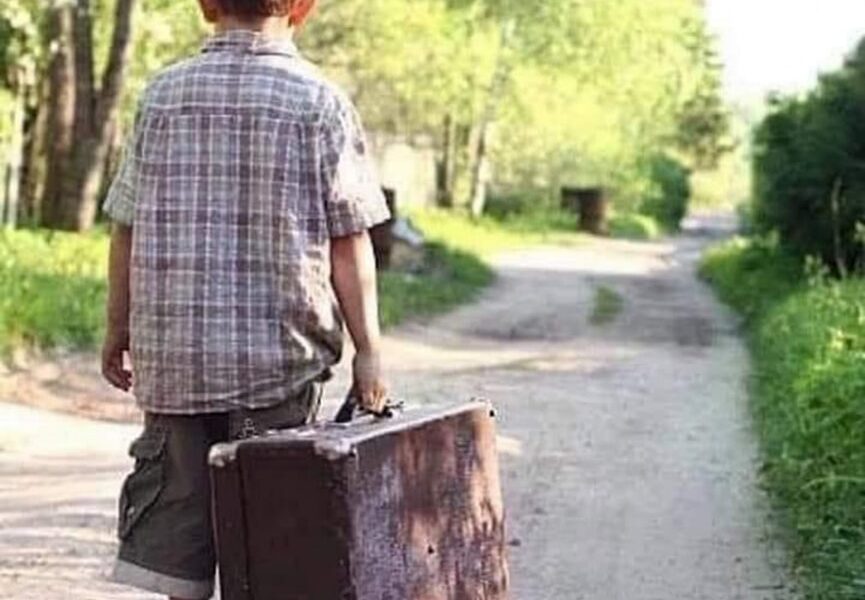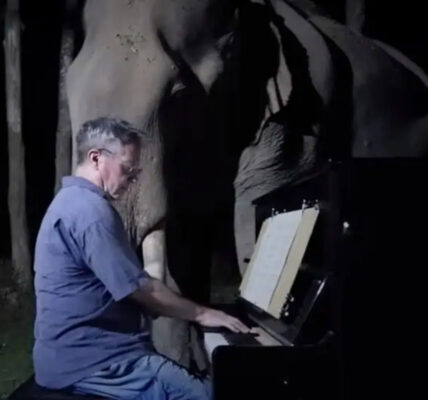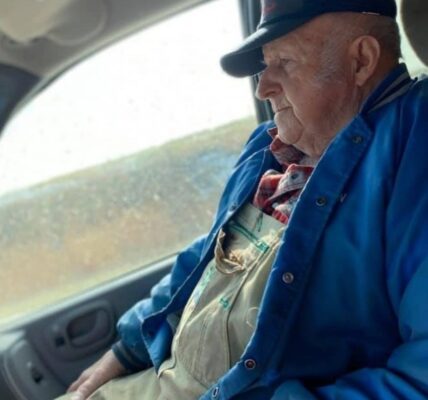Every month, like clockwork, Martín’s parents would take the train to visit Grandma. It was a tradition—a short overnight trip, just long enough for hugs, home cooking, and the comfort of family stories told over hot tea. And every month, they came back home on the same train, returning to the life they had built with Martín.

He always waved them off at the station, watched the train disappear down the tracks, and waited for their return the next evening. But one day, something changed.
“I’m already grown up,” Martín declared, standing tall with the confidence only children can pull off. “Can I go to Grandma’s by myself this time?”
His parents looked at each other. That moment—that moment—was one they’d known would come. Still, it caught them off guard.
They talked quietly, weighing the fear with the pride, the risk with the reward. Finally, they nodded.
“Yes,” his mother said, brushing his hair back. “You can go.”
At the train station the next morning, the air was heavy with a strange mix of excitement and nerves. Martín stood proudly with his backpack, bouncing slightly on his feet. His parents stood with him, offering a thousand last-minute reminders, warnings, tips, and reassurances.
“I know, I know,” Martín sighed, exasperated but smiling. “You’ve told me this more than a thousand times.”
As the train’s whistle blew and the doors began to close, his father leaned in and whispered something only for him:
“If you feel scared or unsure… this is for you.”
And with that, he slipped a small folded note into Martín’s coat pocket.
The doors shut. The train pulled away. And Martín was alone for the very first time.
At first, everything was thrilling. The rhythmic clatter of the tracks, the blur of trees and towns through the window, the independence. He imagined the stories he’d tell Grandma—how brave he had been, how grown-up.
But then the car filled with strangers.
A group of teenagers jostled into the seats behind him, laughing loudly, talking over one another. The conductor glanced at him and made a comment about such a young boy traveling alone. A woman across the aisle looked at him with soft, pitying eyes. The longer the ride went on, the more the magic faded.
Uneasiness crept in. The train car suddenly felt unfamiliar, the faces around him foreign and unkind. His chest tightened. He shrunk into his seat. He felt small again. Very small.
Tears welled up.
Then, through the fog of fear, he remembered.
His father had given him something.
With trembling fingers, Martín reached into his pocket and pulled out the small piece of paper. His eyes scanned the words, his breath catching.
“Son, I’m in the last train car.”
And just like that—he wasn’t alone.
His father was there. Maybe not beside him, but there. Close enough to find if he needed him. Watching. Waiting. Letting him try, letting him fall, but ready to stand behind him if he asked.
That’s how life is, isn’t it?
We raise our children to be strong. To be independent. We teach them to walk, to speak, to think. We tell them, over and over again, what to do when they face hard things. And eventually, we must let them go. We must let them board their own trains, take their own journeys, face strangers and storms and silence.
But that doesn’t mean we disappear.
We become the presence they can’t see—but can feel.
The quiet note in the pocket.
The anchor in a storm.
The passenger in the last car, just in case.
Because love—real love—knows when to step back. But never truly leaves.




